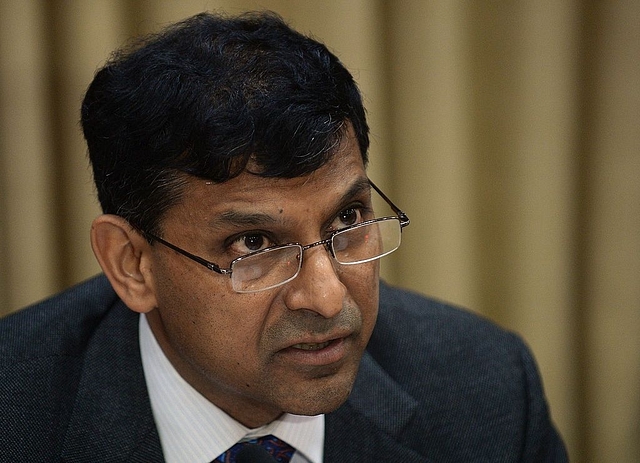
Evaluating The Economic Strategy For India
The executive needs solutions and suggestions to overcome or sidestep ‘political economy’ hurdles and it needs more concrete action blueprints, covering A to Z.
On the 14 December, Raghuram Rajan, former governor of the Reserve Bank of India released a collection of documents assembled under the broad header, ‘Economic Strategy for India’. It is meant to provide a set of policy proposals for the new government coming to office in May 2019. The overall executive summary is here.
I went through some of the individual documents that made up the overall executive summary.
I liked Sajjid Chinoy’s document on de-risking the external sector. It contained some specific proposals. They were not ‘high altitude homilies’. I had mentioned this before. But, it is worth repeating: In September 2015, when I was one of the invitees to the PM’s meeting on Economic Strategy for India, I had recommended taking long out-of-the-money call options on crude oil then, because crude oil prices had plunged. I had also recommended fiscal policy relaxation to the tune of 0.5 per cent of GDP solely directed towards recapitalising banks. Not that both were adopted, however. Sajjid recommends active hedging of crude oil. He recommends strengthening the FX reserves through active swap agreements. Both are worthwhile suggestions.
I went through Prachi Mishra’s ‘Responsible growth: way forward for India’. It is full of recommendations on fiscal rectitude. I think the best response to that was written by my friend Srinivas Thiruvadanthai in Swarajya. Please see his comments here. Srini’s comments were about whether fiscal profligacy played a role in precipitating India’s ‘Balance of Payments’ crisis in 1991. It had a role but not THE role. Fiscal policy has its place in managing aggregate demand. Historically, India has not been profligate. Least of all, this government.
In general, Srini says that in comparison to Latin America, India has been mostly fiscally prudent, despite tendency towards populist measures. So, making such sweeping recommendations on fiscal rectitude without even acknowledging the need to take the recommendations in context-specific fashion is ill-advised.
Another bunch of homilies is from Eswar Prasad on the financial sector reforms and some of them could even be counterproductive. The Government of India and the Reserve Bank of India (especially the latter) have been making haste slowly in liberalising the financial sector. It should continue.
Raghuram Rajan’s proposals for the banking sector are mostly familiar. I had made more specific suggestions in my ‘draft’ speech for the Prime Minister on Banking Reforms published in March 2018. To be clear, most of my recommendations in that speech were drawn from speeches made by Dr Y V Reddy over the years.
Neelkanth Mishra makes a sincere attempt at getting granular with respect to agricultural reforms. His proposals are best read in conjunction with Ajit Ranade’s latest op.-ed. on the problems plaguing Indian farmers.
Neelkanth Mishra’s energy reform proposals follow a similar path. Perhaps, he has not spelt out all that he wished to. Arvind Subramanian, in his book, Of Counsel makes the case for using coal, even if it has to be made more eco-friendly before doing so. India cannot abandon its vast coal reserves and its thermal power plants. Stranded assets – as Arvind puts it – will also add to the government burden. India needs to develop energy options commensurate with its energy needs and endowments. It cannot become a ‘çarbon hostage’ of the West. Arvind’s chapter on this is worth a read.
Not much specifics are there in the proposals on the environment. I would say that my good friend Mridula Ramesh has made far more feasible and implementable set of proposals on environment, water and climate change than most others. Worth reading her book and her articles in Firstpost.
Also, more practical stuff has been written on the labour market by Manish Sabharwal than most others. See his latest in MINT, for example.
I did not read the other proposals. The general impression that one gets is the proposals are familiar. That is not a criticism. Good things bear repetition so that they are reinforced. But, they are mostly in the nature of homilies. The executive too knows what needs to be done. There are plenty of recommendations from committees over the years. The executive needs solutions and suggestions to overcome or sidestep ‘political economy’ hurdles and it needs more concrete action blueprints, covering A to Z.
(Postscript: Now that Rahul Gandhi has said that he would not let Modi sleep unless all farm loans are waived, I wonder if the experts would issue a statement expressing concern (if not condemnation). They had recommended that governments abandon the path of loan waivers and rightly so. Will be interested to see the stance they take on Gandhi’s destructive and counterproductive populism. Obviously, he and his party have learnt nothing from their disastrous rule of 2004-14)
This article first appeared in the Gold Standard and has been republished here with permission.